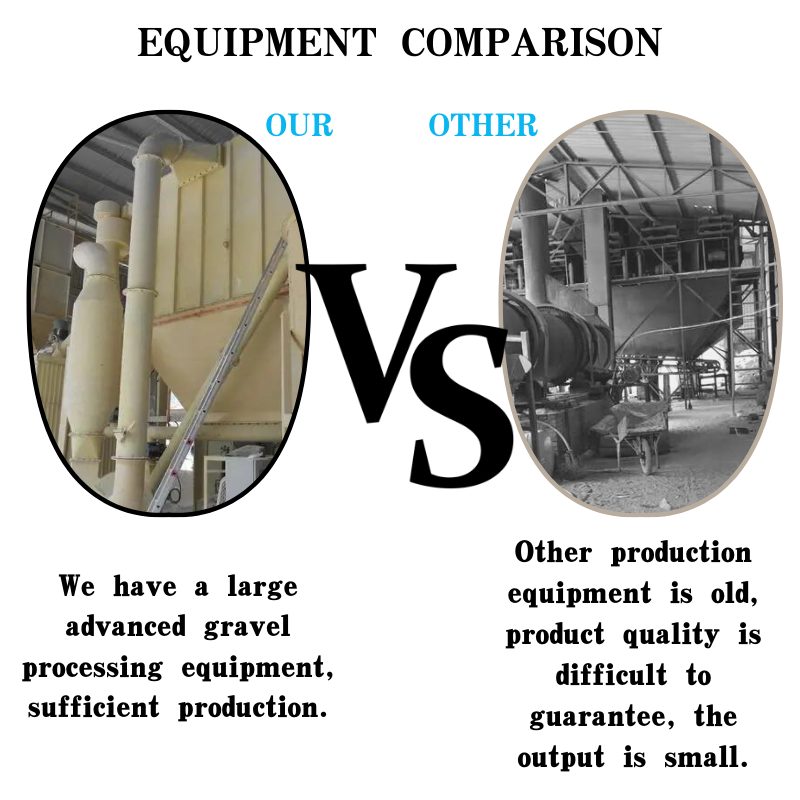
iron ore bulk
The Significance of Iron Ore Bulk in Global Trade
Iron ore is a fundamental raw material in the production of steel, which is quintessential for infrastructure, construction, and various industries worldwide. With the growing demand for steel, the trade of iron ore has expanded significantly, particularly in bulk shipments. The concept of iron ore bulk refers to the transportation of iron ore in massive quantities, typically by sea, allowing for more economical and efficient trade practices. This article delves into the importance, challenges, and trends surrounding iron ore bulk trade.
Economic Importance
The bulk iron ore trade plays a crucial role in the global economy. Major producers like Australia and Brazil dominate the market, supplying vast quantities to countries like China, which is the largest consumer of iron ore, driven by its booming construction and manufacturing sectors. Bulk shipping reduces transportation costs per ton, making it an attractive option for both suppliers and buyers. The economies of scale in bulk transport mean that the cost of production can be distributed over more significant quantities, resulting in lower prices for steel and, consequently, for consumer goods that rely on steel as a primary material.
The efficiency of bulk shipping has led to a restructuring of global trade flows. For instance, the rise of the Chinese economy has shifted trade patterns dramatically, with Chinese manufacturers relying heavily on iron ore imports to meet their production needs. The consequent increase in demand for bulk iron ore has influenced shipping routes, port infrastructures, and even shipping technologies, leading to innovations aimed at maximizing efficiency and minimizing costs.
Environmental Considerations
While the bulk iron ore trade is economically beneficial, it raises various environmental concerns. The extraction and transportation of iron ore can result in significant ecological impact, including habitat destruction, soil erosion, and air and water pollution. Shipping in bulk, while economical, also contributes to greenhouse gas emissions, especially as large vessels consume significant amounts of fuel.
Companies in the iron ore sector are increasingly aware of their environmental footprint. There is a growing trend toward adopting more sustainable practices, such as investing in cleaner technologies and adhering to stricter environmental regulations. Additionally, efforts are underway to improve the logistics of transportation, aiming to minimize emissions related to the bulk shipping process.
iron ore bulk

Technological Advances
Advancements in technology have enhanced the efficiency of both extraction and shipping processes in the iron ore sector. Innovations such as automated mining equipment, more efficient crushers, and conveyor systems allow for higher recovery rates and reduced operational costs. Moreover, shipping technology has evolved, with the development of larger vessels and improved navigation systems that not only speed up the transport but also reduce the environmental impact per ton of ore transported.
Digitalization is also making waves in the industry. The implementation of Big Data and IoT (Internet of Things) has improved inventory management, route optimization for bulk carriers, and predictive maintenance for both mining and shipping equipment. These advancements ensure that the supply chain remains robust, catering to the fluctuating demands of the global market.
Future Outlook
Looking ahead, the global iron ore bulk trade is set to evolve further, influenced by factors such as political changes, economic trends, and technological advancements. The transition towards renewable energy sources is creating a new landscape in steel production, with increased interest in green steel produced with reduced carbon emissions. This shift could, in turn, affect iron ore sourcing and demand dynamics.
Moreover, as consumers and governments increasingly prioritize sustainability, companies that adapt to these demands may thrive. This could lead to a greater emphasis on ethical sourcing and supply chain transparency in the iron ore market.
In conclusion, the bulk trade of iron ore is a cornerstone of the global economy, facilitating the seamless supply of one of the most vital materials for steel production. While it presents economic benefits, environmental challenges and technological advancements will shape the future of this industry. Stakeholders must engage proactively with these trends to ensure that the iron ore sector continues to grow sustainably, meeting both economic needs and environmental responsibilities.
Share
-
Fly Ash Solutions Enhanced by GPT-4 Turbo | Sustainable InnovationNewsAug.01,2025
-
Natural Premium Bentonite Cat Litter - Superior ClumpingNewsJul.31,2025
-
Premium Resin Coated Sand - High Heat Resistance CastingNewsJul.31,2025
-
High Quality Silicon Carbide Grit for Abrasive ApplicationsNewsJul.30,2025
-
High-Quality Ceramsite for Plants & Gardening | Lightweight PebblesNewsJul.29,2025
-
Premium Burgundy Glass Marbles for Vases & Shooter GamesNewsJul.29,2025






